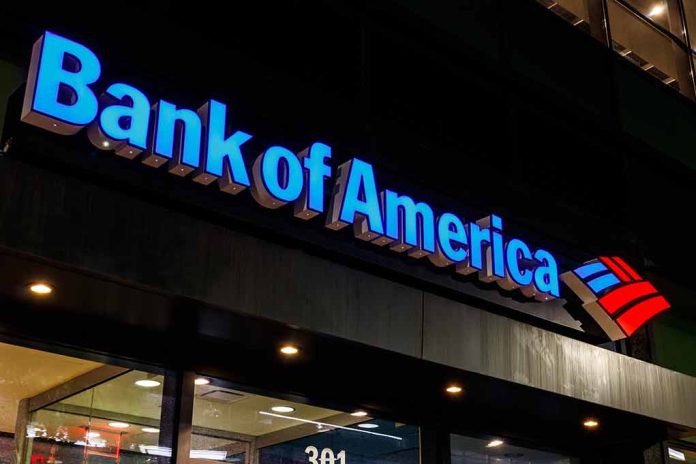
Banks are closing accounts of conservative figures, sparking accusations of political discrimination and calls for legislative action.
At a Glance
- Debanking, the denial of financial services based on political views, is on the rise
- High-profile conservatives like Melania Trump and Dinesh D’Souza report account closures
- Tech leaders Elon Musk and Marc Andreessen advocate for laws against politically motivated debanking
- Florida has passed legislation prohibiting financial discrimination based on political or religious views
- Critics compare debanking to Big Tech censorship, suggesting government influence
The Growing Concern of Debanking
Debanking, a practice where financial institutions deny services based on customers’ political or religious views, has emerged as a contentious issue in the United States. Major financial institutions with assets over $100 billion are reportedly involved in this practice, affecting individuals, businesses, and non-profits. The trend has raised alarm bells among conservatives who view it as a form of discrimination and a threat to civil liberties.
High-profile cases have brought national attention to the issue. Former First Lady Melania Trump reported the closure of her long-time bank account and the denial of her son’s application to open a new one. Conservative filmmaker Dinesh D’Souza also claimed his account was unexpectedly closed without explanation.
This is how debanking works. Political opponents are categorized by regulators as “high risk”. If a bank continues banking them, it opens itself up to investigations, exam findings, enforcement actions, etc. As a result, banks have little choice but to end these customer… https://t.co/5AB6t3ZBch
— Tyler Winklevoss (@tyler) November 30, 2024
Tech Leaders Speak Out
Influential figures in the tech industry have been vocal about the issue. Marc Andreessen, co-founder of Andreessen Horowitz, raised concerns about the frequency of debanking incidents in the tech sector. Elon Musk, CEO of Tesla and SpaceX, has been particularly outspoken, suggesting that politically motivated debanking should be considered a federal crime.
“We’ve had like 30 founders debanked in the last four years,” Andreessen told Joe Rogan. “It’s been a big recurring pattern. This is one of the reasons why we ended up supporting Trump. We just can’t live in this world. We can’t live in a world where somebody starts a company that’s a completely legal thing and then they literally get sanctioned and embargoed by the United States government.”
The cryptocurrency industry, which initially aimed to challenge traditional banking systems, now finds itself fighting for basic banking rights. Tech leaders argue that the industry is unfairly targeted, possibly due to pressure from the Biden administration.
Regulatory Challenges and Government Involvement
Federal regulatory agencies, including the Office of the Comptroller of the Currency (OCC), deny directing banks to terminate accounts based on customer categories. However, skepticism remains high among those affected by debanking.
“The OCC does not direct banks to open, close, or maintain individual accounts. Nor does the OCC recommend or encourage banks to engage in the wholesale termination of categories of customer accounts,” the office said in a statement.
Critics draw parallels between current debanking practices and the Obama-era “Operation Choke Point,” which targeted certain legal industries. There are also concerns about post-January 6 instructions to banks to monitor transactions for “suspicious charges” related to political and religious terms such as “MAGA” or “Trump”.
Legislative Action and Industry Response
In response to these concerns, some states are taking action. Florida has passed a law prohibiting financial discrimination based on political or religious views. This move signals growing recognition of the issue at the state level.
The Blockchain Association has identified over 30 cases of debanking related to the digital asset industry. Industry advocates are exploring options to end what they view as unlawful debanking practices. As the debate continues, there is anticipation of comprehensive policy changes, particularly with the arrival of new governmental leadership.






















